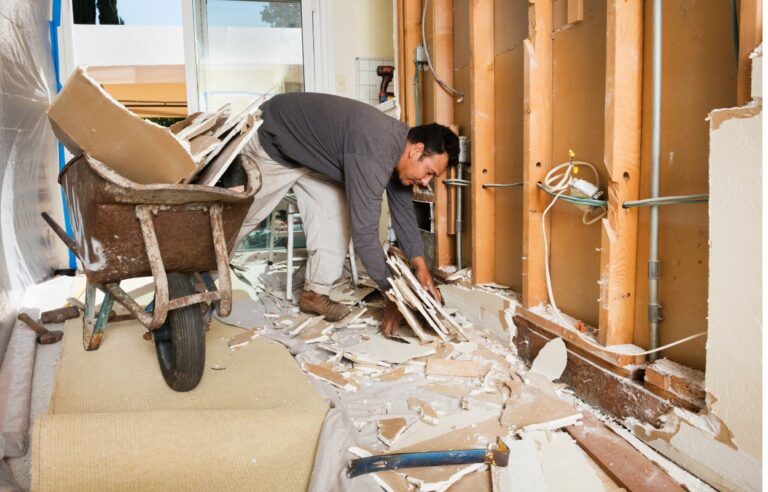
Construction activities generate a significant amount of waste, contributing to environmental degradation and resource depletion. However, by implementing effective recycling practices, construction waste can be transformed into a valuable resource, benefiting both the environment and your budget. This article explores the numerous advantages of recycling construction waste, highlighting the positive impact it has on reducing landfill waste, conserving natural resources, promoting sustainable construction practices, fostering economic growth, and enhancing project cost-effectiveness
RECYCLING HELPS REDUCE LANDFILL WASTE
Construction waste, if not properly managed, ends up in landfills, occupying precious space and releasing harmful substances into the environment. By recycling construction waste, we can significantly reduce the volume of waste sent to landfills, alleviating the strain on limited landfill capacity. Moreover, diverting waste from landfills helps to minimize the production of greenhouse gases, further contributing to mitigating climate change.
RECYCLING HELPS CONSERVE NATURAL RESOURCES
The construction industry heavily relies on the extraction of raw materials, leading to the depletion of finite resources. Recycling construction waste offers a sustainable alternative by reusing materials such as concrete, asphalt, wood, and metal, thereby conserving natural resources. By incorporating recycled materials into new construction projects, the demand for virgin materials decreases, reducing the need for additional resource extraction.
RECYCLING PROMOTES SUSTAINABLE CONSTRUCTION PRACTICES
Recycling construction waste aligns with the principles of sustainable construction practices. Integrating recycled materials into building projects reduces the environmental impact associated with resource extraction, manufacturing, and transportation. Additionally, using recycled materials can contribute to achieving green building certifications, which enhances the marketability and value of a construction project.
RECYCLING HELPS FOSTER ECONOMIC GROWTH
Recycling construction waste not only benefits the environment but also stimulates economic growth. The recycling industry generates jobs and creates new business opportunities. The process of sorting, processing, and reusing construction waste requires skilled labor, thus providing employment opportunities within local communities. Moreover, recycling construction waste can lower project costs by reducing disposal fees and the need for new material procurement, resulting in overall cost savings.
ENHANCING THE PROJECT’S COST-EFFECTIVENESS
Incorporating recycled materials into construction projects can lead to significant cost savings. Many recycled materials, such as crushed concrete or reclaimed lumber, are often cheaper than their new counterparts. By utilizing these cost-effective alternatives, construction projects can be completed within budget while maintaining quality standards. Additionally, reduced waste disposal costs contribute to the overall financial feasibility of a project.
Recycling construction waste presents numerous benefits for both the environment and your budget. By reducing landfill waste, conserving natural resources, promoting sustainable practices, fostering economic growth, and enhancing project cost-effectiveness, recycling becomes an essential component of responsible construction management. Embracing recycling practices in the construction industry not only demonstrates a commitment to environmental stewardship but also provides a competitive edge in an increasingly sustainability-conscious marketplace. It’s time to recognize the tremendous value that lies within construction waste and harness its potential to create a cleaner, greener, and more prosperous future.





